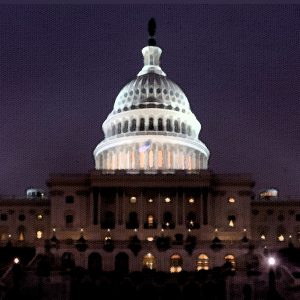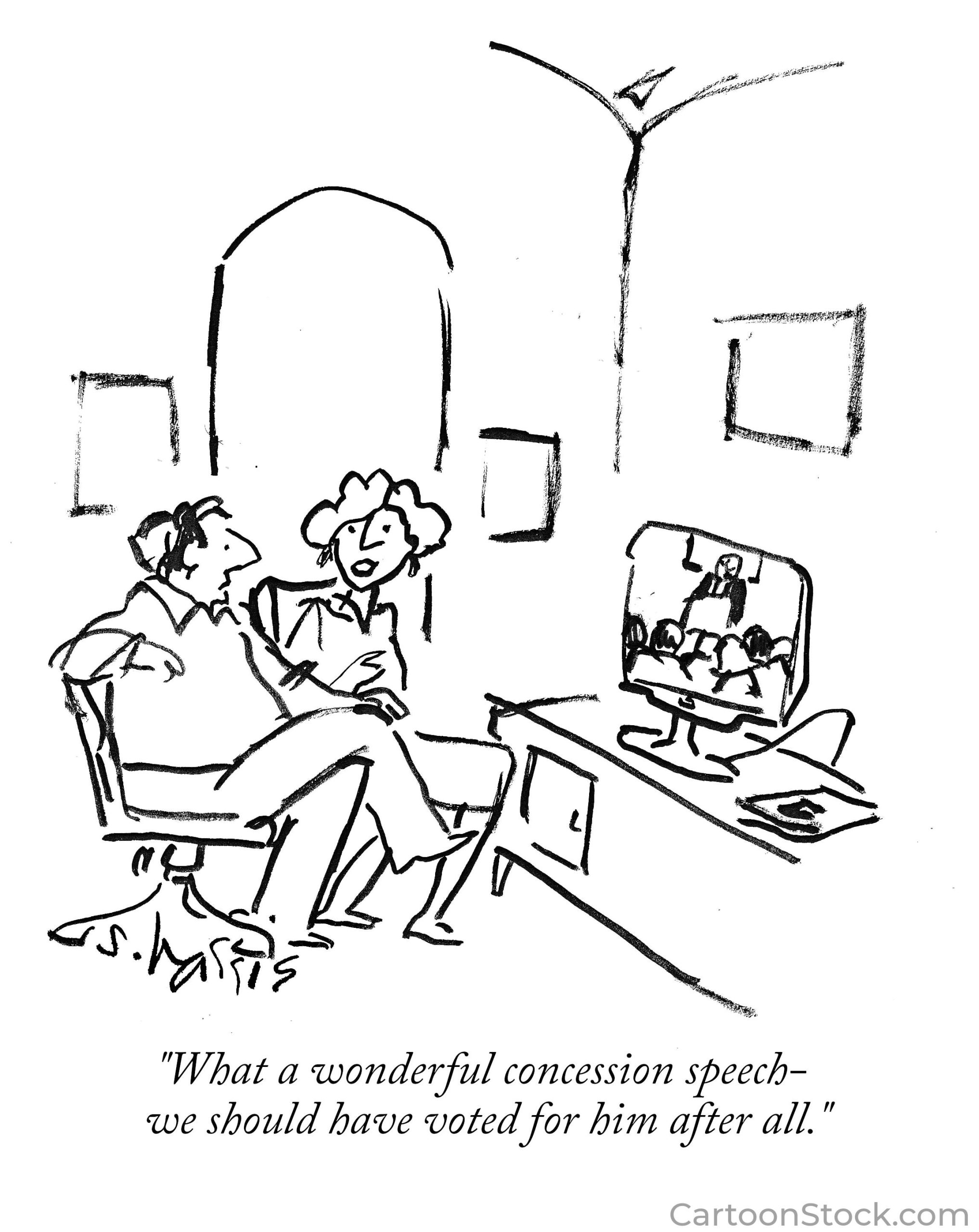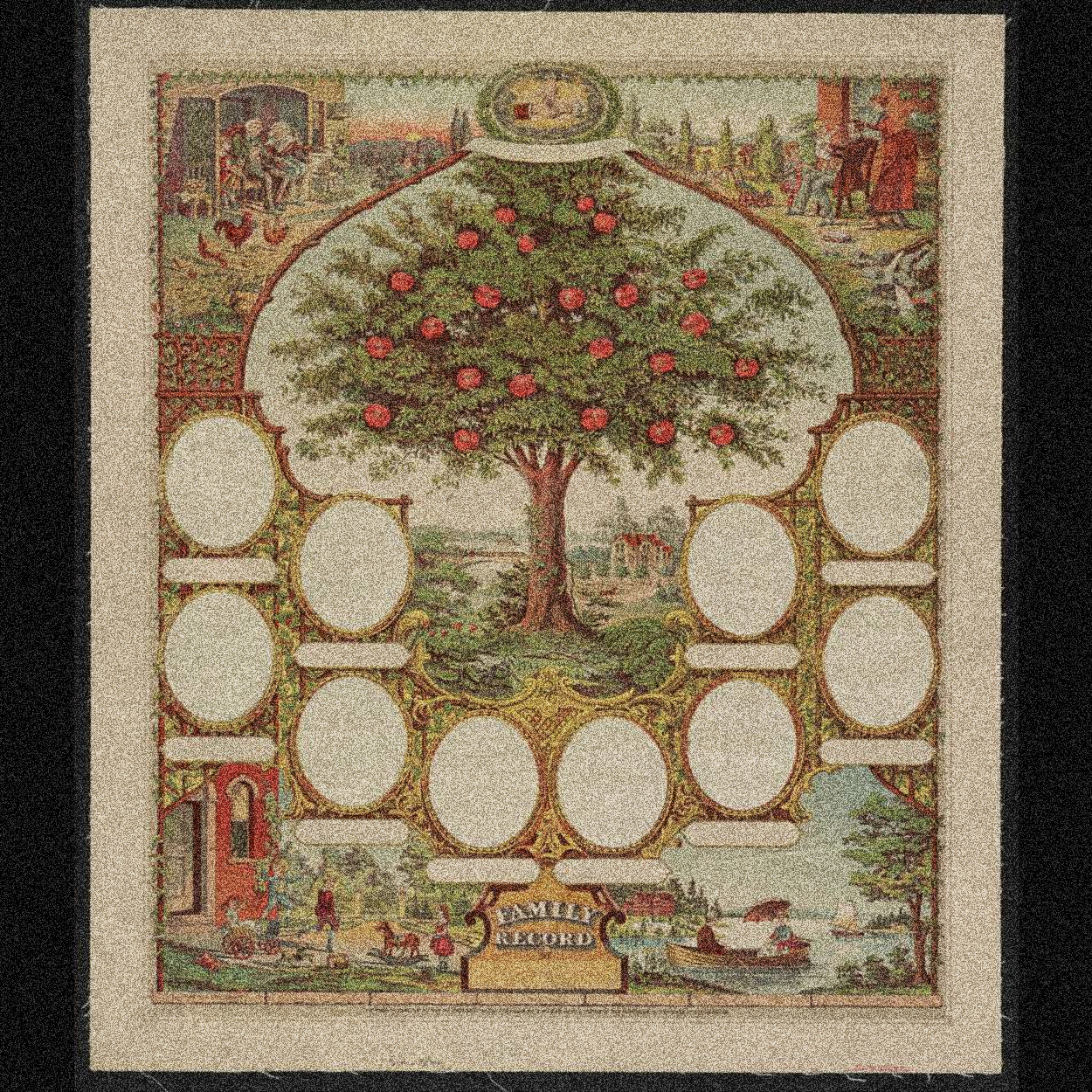A number of people have commented on and responded to the radical orthodoxy manifesto. Some of those responses have been surprisingly intemperate, as if (on the one hand) calmly inviting others to support and defend the unanimous teachings of prophets and apostles was a gross crime, or as if (on the other hand) expressing support for intellectual engagement with the implications of the Restoration was a grave heresy. We’ve largely ignored these sorts of responses, as they demonstrate the urgency of the project.
Other responses have been more temperate and reasonable, even if we ultimately disagree. One has been published in Public Square, alongside this piece. There have been others as well. Here, we respond to four particular criticisms of the radical orthodoxy manifesto.
(1) “Radical orthodoxy may come to serve as another identifier by which people caveat their conviction and covenant-keeping.”
As we stated in the manifesto itself, Latter-day Saint radical orthodoxy is not a faction or a division in The Church of Jesus Christ of Latter-day Saints. It’s a phrase that describes a stance that we take toward our faith and the restored Church of Jesus Christ. Nathaniel Givens, one of the authors, aptly put it this way in a Facebook comment:
We’re also not interested in creating a “movement” in any formal sense, with a membership role and formal procedures for including or excluding people. We are not a sect within The Church of Jesus Christ of Latter-day Saints, and we will burn everything related to LDS Radical Orthodoxy down if it ever looks like we’re in danger of becoming such a sect. The only membership that matters is in the Kingdom of God, and we aren’t that. We wrote the Manifesto to stand on its own and act as an inspiration, not a club.
One of us also expressed a similar idea in a series of tweets:
Radical orthodoxy, as understood by the authors of the original document, isn’t a label for people or a group of people. We should identify as children of God, disciples of Christ, and as members of The Church of Jesus Christ of Latter-day Saints. If anything, this is a label for a style of discourse, one that seeks to explore the ramifications of the Restoration in light of core, shared commitments to the fierce moral witness of prophets and apostles, and to do so while seeking to emulate Christ.
If at any point, the concept of radical orthodoxy starts to encroach on, compete with, or distract from our core identity as disciples of Christ and members of The Church of Jesus Christ of Latter-day Saints, it ceases to be useful. The purpose of the project is not to draw lines, create a faction, or anything of the sort—it’s to showcase work that is being done that explores the implications of the Restored gospel in our professional, academic, and personal lives.
It’s true that those of us who have formally expressed support for the radical orthodoxy manifesto are something of a community; we are networked in various ways on and off of social media, in church, professional, and other environments. We look to collaborate and to promote voices and materials that align with the intellectual and spiritual stance described in the manifesto and supporting essays. Radical orthodoxy is not an identity. And it shouldn’t be.
That’s not the same thing as a faction or sect. And this deserves the utmost clarity: radical orthodoxy is not an identity. And it shouldn’t be. The moment it becomes a label that is regularly applied to people instead of to ideas is the moment it moves beyond something we can support. It would be a great detriment to have the Latter-day Saint community develop named factions (e.g., Sadducees vs. Pharisees, or Reformed vs. Orthodox Judaism).
Our purpose is to point those we engage with towards the moral witness of men and women who are commissioned of God to lead this church and to seek unity as a church under their leadership and teaching—including what they have taught recently about identity. In his recent talk The Love and Laws of God, President Russell M. Nelson encouraged believers to embrace five core gospel truths:
- You are sons and daughters of God.
- Truth is truth.
- God loves every one of us with perfect love.
- The Lord Jesus Christ, whose Church this is, appoints prophets and apostles to communicate His love and teach His laws.
- You may know for yourself what is true and what is not by learning to discern the whisperings of the Spirit.
President M. Russell Ballard echoed this statement in a recent talk:
While you think about this, may I remind you that there is one important identity we all share now and forever, one that we should never ever lose sight of, and one that we should be grateful for. That is that you are and have always been a son or daughter of God with spiritual roots in eternity. First and foremost, you are and always will be a spirit child of God. Those aren’t just words from a beautiful Primary song. They are words of truth. They are imbued with eternal significance for all of us.
The foundational fact of heavenly parentage is not just my truth or your truth. It is eternal truth. It is written in big, bold, capital letters. Understanding this truth—really understanding it and embracing it—is life-changing. It gives you an extraordinary identity that no one can ever take away from you. But more than that, it should give you an enormous feeling of value and a sense of your infinite worth. Finally, it provides you a divine, noble, and worthy purpose in life.
We see with alarm a growing tendency among people both in and out of the Church to develop competing identities around grievances, nationality, ethnicity, politics, sports teams, physical attributes, sexual orientation, and other life experiences. Compared with the identity afforded to us by our covenants, these competing identities are fragile and divisive, needing constant affirmation among those who adopt them as their primary lens for self-understanding.
Latter-day Saint radical orthodoxy will only ever affirm the supreme (and ultimately the only relevant) conceptualization of identity: that we are children of Heavenly Parents, and brothers and sisters redeemed by The Living Christ. As disciples of Christ and members of The Church of Jesus Christ of Latter-day Saints, our endeavors are to serve Him and draw others to Him. Our purpose in all our writing, scholarship, and discourse is not to convert others to radical orthodoxy (or any other orthodoxy), it’s to convert others to Christ.
And as such, we will not always (or even often) respond to every critique of radical orthodoxy that enters our inbox—because our goal is not to convince people of our particular project, but to convince people of the Restored Gospel, and focusing too much on defending and defining radical orthodoxy is going to distract us from that primary goal and purpose. Readers will notice that the writing and scholarship of those who signed the manifesto will rarely (if ever) even mention radical orthodoxy.
In other words, what we seek is not a new brand of being Latter-day Saint, because we don’t think our project is all that new at all. Many of the people who signed the document have been doing radical orthodoxy for decades, just not under that name. Simply put, it’s a project of exploring the ramifications of the Restored Gospel in our professional and personal lives with maximum integrity, and while taking cues from the ongoing direction of prophets and apostles.
Furthermore, we see this project as an invitation away from the various competing identities that threaten to overwhelm our identity as children of God and disciples of Christ. It’s an invitation to not let our politics or our ideologies—whether we are Democrats or Republicans or Libertarians or Progressives or Conservatives or anything else—distract us from the ongoing teachings of God’s servants. And overall, it’s an invitation to put Christ at the center of everything we do— which is why The Living Christ is treated by the authors as the center-pole of radical orthodoxy.
(2) “Radical orthodoxy mixes its axes and thus confuses the central distinctions.”
In the manifesto, we contrasted obstinate fundamentalism with unbridled progressivism. Some have argued—and somewhat persuasively—that there are two dimensions at play, and not one:
- Elevating progressive politics and ideologies over the teachings of prophets VS. Elevating conservative politics and ideologies over the teachings of the prophets.
- Believing that everything is up for grabs and thus being unwilling or cavalier about defending any Church teaching or tradition VS. Believing that nothing can change or evolve in our teachings, practices, and traditions.
Some argue that the manifesto, as written, contrasts the left hand on the first dimension with the right hand on the second. In our conversations, while writing the manifesto, we used the term “unbridled progressivism” in a largely non-political sense, as a stand-in for the left hand of the second dimension above. For example, in some follow-up pieces, we specifically identify treating the Book of Mormon as “inspired fiction” (without any historical basis) as an example of unbridled, anything-goes theological progressivism.
That said, in our private and public conversations, we’ve also treated the two extremes identified in the manifesto as enveloping both dimensions. Elevating political ideology of any kind— progressivism, conservatism, or libertarianism—over the contemporary teachings and warnings of prophets and apostles strikes us as against the spirit of the manifesto and our intentions in writing it. And yet some nonetheless felt that the language of the manifesto wrapped up left-wing politics in its critique of “unbridled progressivism,” and yet was lacking in its critique of similarly-concerning right-wing loony-ness, and that this gave the document a political slant.
That was not our feeling at all in writing it, and for a while, we did not think clarification was needed—since it seemed clear to us that wholly ignoring, blithely dismissing, or outright criticizing the current statements of Church leaders from any political or ideological territory was contrary to the spirit of what we were encouraging. We are just as concerned about conservative members who publicly castigate Elder Renlund for encouraging mask-wearing, or President Oaks for encouraging social distancing, as we are for those who elevate progressive politics over the teachings of our leaders.
Our goal has been to invite people to keep their eyes on the ball (the current, unanimous teachings of God’s servants), and to not be distracted by ideological riptides that are pulling us away from those teachings and polarizing us as communities, either to the left or to the right, however those dimensions may be defined. We are also asserting that it is possible to be both nimble-minded and yet also full of conviction and faith—that fidelity to our covenants doesn’t put us in an intellectual straitjacket.
Jonathan Green, one of the signatories, suggested to us that the term “antinomianism” might be an alternative to what we most clearly mean by “unbridled progressivism.” He may be right. Antinomianism refers to “any view which rejects laws or legalism and argues against moral, religious or social norms.” Wikipedia explains, “In some Christian belief systems, an antinomian is one who takes the principle of salvation by faith and divine grace to the point of asserting that the saved are not bound to follow the moral law contained in the Ten Commandments.”
Some in the faith are taking the position that there is no “right” way to be a Latter-day Saint, and from this are extrapolating that one can reject our core teachings and still be a devoted (and faithful) member of the Church. Some assume that the unanimous declarations of prophets and apostles should be taken only as their (at-times) ill-formed opinions, to be revised in light of more enlightened scholarship or the latest cultural fads. Still others assert that there should be no normative worldviews within the faith—that is, no beliefs that we consider to be non-negotiables.
The antinomian aversion to firm doctrines and epistemic commitments is often presented as a yearning for a more inclusive church and community. However, all communities have norms. We do not think it is possible to have a community without them. And unity within our faith community requires something substantive around which we are unified. We don’t think there’s anything amiss in taking cues from prophets and apostles about what that “substantive something” should be. We lose that bond of common belief as a community when we view the shared witness testimony of the prophets and the scriptures as somehow subordinate to other external commitments.
(3) “The Latter-day Saint radical orthodoxy manifesto may contribute to balkanization within the Latter-day Saint community.”
And this leads us to the third criticism, leveled by Huston, and published alongside this response: that the Church is currently in danger of balkanization, or the development of competing camps and perspectives that divide the community. Furthermore (and we hope we aren’t misunderstanding Huston here), it seems to us that Huston believes the antidote to balkanization (or our best defense against it) is a sort of Latter-day Saint antinomianism, as described before. He is concerned about our attempts to “delegitimize one view of the Gospel or to validate/advocate for another,” and suggests that …
Rather than quibbling over whether one person’s experience with the gospel is better (or more right or more true or more straight or more narrow) than another’s, going back to Paul, we need to let fingers be fingers and toes be toes and appreciate each for what they are without trying to make them something different.
In short, Huston’s antidote to balkanization is to acknowledge many legitimate ways to be a Latter-day Saint and declaring no way as more legitimate than any other.
We share Huston’s concern about balkanization, and it’s precisely because of that concern that we set forth on this project. It is possible that Huston has read into our project an unbending, unyielding, stern-hearted attack on those not (yet) wholly converted to the teachings of prophets and apostles. If so, then his entire critique may stem forth from a fundamental misunderstanding of the character and intentions of the manifesto’s authors and signatories. We disagree that rallying people around the unanimous teachings of prophets and apostles contributes to balkanization.
Many of us are very concerned about the spirit of accusation some embrace towards those who aren’t yet convinced of the Church’s teachings. One of the core values listed in the manifesto reads: “We love all of God’s children and we cultivate a soft-hearted temperament that rejects the spirit of contention towards those with different views, even while we vigorously defend the truth.” Huston is absolutely correct on a ministerial level about our need to be gentle and inclusive.
All that said, we would be failing in our duty to live and teach the Restored Gospel if we did not try to persuade others of core teachings affirmed by prophets today. We disagree that rallying people around the unanimous teachings of prophets and apostles contributes to balkanization. Connecting the ship to its divinely appointed rudder shouldn’t make it harder to steer.
In his critique of the radical orthodoxy effort, Huston asserts that
I do not believe that all individuals described in Fourth Nephi or Moses saw the world, or even the Gospel, in the exact same way. How could they? Each person is eternally and profoundly unique, and each person’s life experience is distinctive to that individual. Rather, in Fourth Nephi and Moses we get a description of people who did not allow their God-given uniqueness to result in factions. In fact, consistent with Paul’s writings, what these groups figured out is that it is from this variety of experience and perspective that the Body of Christ draws its strength (1 Cor 12:12-27). But this is a lesson that is easily put aside.
Huston misunderstands our project entirely if he thinks we disagree. We are explicitly stating that there is room for diversity of views within our faith. We are rejecting the fundamentalist claim that everybody must see things the same way, on a host of issues from Book of Mormon geography, the role evolution in creation, the exact nature of the Spirit World, the historicity of the Book of Jonah, anticipated events in the Second Coming, the proper approach to healing, and so on. We can be both diverse in our views and unified in our covenants. In all that, we share Huston’s vision and are actually trying to advance that vision.
Yet the text of 4 Nephi is unambiguous about the source of unity among the Nephites: “And it came to pass in the thirty and sixth year, the people were all converted unto the Lord, upon all the face of the land.” The source of their unity was not heritage, grievances, politics, geographical proximity, a desire to belong to something, or even just a general shared sense of humanity. They were unified because, and only because, they were converted to the Lord Himself.
Being converted means that even in their diversity, they shared a specific set of cognitions about what they had experienced in the land Bountiful, and they shared soul-level commitments to God, a commitment to support and sustain a specific institution led by specific people, and a devotion to each other’s spiritual and temporal well being. Every other rival intellectual, cultural, and ideological commitment was rendered subordinate to the ones they shared as a community operating under the guidance of divinely-ordained individuals that they had covenanted to sustain.
In the absence of a broadly-shared core unifying experience of conversion to Christ and a commitment to sustain His ordained servants, we would argue any “togetherness” is illusory and unsustainable. Huston is right to be concerned about division. When -ites arise among us, however, it is not due to our promotion of the contemporary teachings of prophets and apostles. In fact, -ites emerge from the opposite: the uncritical embrace of competing identities, competing epistemologies, and competing ideologies.
(4) “Subsequent essays have drawn lines in all the wrong places.”
Some have adamantly objected to the assertion that the unanimous teachings of prophets and apostles in the three tentpole proclamations should be treated as non-negotiables. If there is a core doctrine, some have said, it doesn’t include the Church’s teachings on marriage and gender. For example, Huston implies this when he states, “Jesus has been quite clear about what constitutes His Gospel (see, for instance, 3 Nephi 27:13-21).”
We agree completely that the mission, sufferings, and resurrection of Christ sit at the core of our faith. However, we think it’s a misinterpretation to conclude that no other doctrinal beliefs beyond this should be treated as normative within our community—especially when Christ’s agents on earth are declaring some teachings to be of vital importance. And we suspect that Huston agrees with us on that, too. He urges for a generous interpretation of the boundaries of our faith (presumably in reference to those not yet convinced on gender and marriage)—but would he extend that same grace towards those who (wrongly) think that our beliefs require us to oppose refugee resettlement? Or to endorse and promulgate racist views and policies?
We suspect Huston would agree with us that those who make these assertions are stepping beyond our shared commitments as Latter-day Saints, and even working against them. And we suspect (though we do not know) that Huston supports efforts to rally people around prophetic warnings against nativism and racism, and has no trouble at all “delegitimizing” the claims of those who think either are consonant with our faith.
In short, even though many seem to be setting forth a form of Latter-day Saint antinomianism, we do not think anybody in this discussion seriously thinks we should dispense with norms altogether. We just seem to disagree about what those norms should be. Many have no issue with saying that prophetic and apostolic teachings that are more consonant with progressive ideological views (e.g., warnings against nativism and racism) should be treated as normative. They simply object to the claim that those teachings that are more consonant with conservative ideological views (e.g., teachings on marriage and gender) should be treated as normative.
And the radical claim of radical orthodoxy is that both should be treated as normative—that when our current prophets teach and warn, we should take them seriously whether or not those teachings conflict with our progressive, conservative, antinomian, or fundamentalist leanings. And we are also claiming that the documents that were signed by all fifteen prophets and apostles who lead our church should be given a privileged place in what we take to be important in our faith.
Which leads to a final noteworthy aspect of Huston’s critique of the radical orthodoxy project: nowhere in his essay does he use the word prophet. This word expresses a foundational element of the Latter-day Saint worldview since the beginning era of our faith. Huston is correct that the process of coming to know Christ is very personal, but it is also true that Jesus told his servants “Whoever listens to you listens to me, and whoever rejects you rejects me. And whoever rejects me rejects him who sent me.” Indeed both of the scriptural Zion societies that Huston holds up as models for us to emulate were led by prophets ordained of God.
Our goals for the radical orthodoxy project are simple: to create space for scholars and writers in the Church to (1) support and defend the teachings of the Church, and also (2) explore anew the ramifications of the Restoration in ways that are thoroughly faithful to the moral witness of prophets and apostles—as well as responsive to their contemporary priorities and concerns. We feel that such endeavors—by any name—are not divisive; in fact, they are the only source of authentic unity in the face of the atomizing intellectual and political trends that are serving to balkanize people of faith.



















